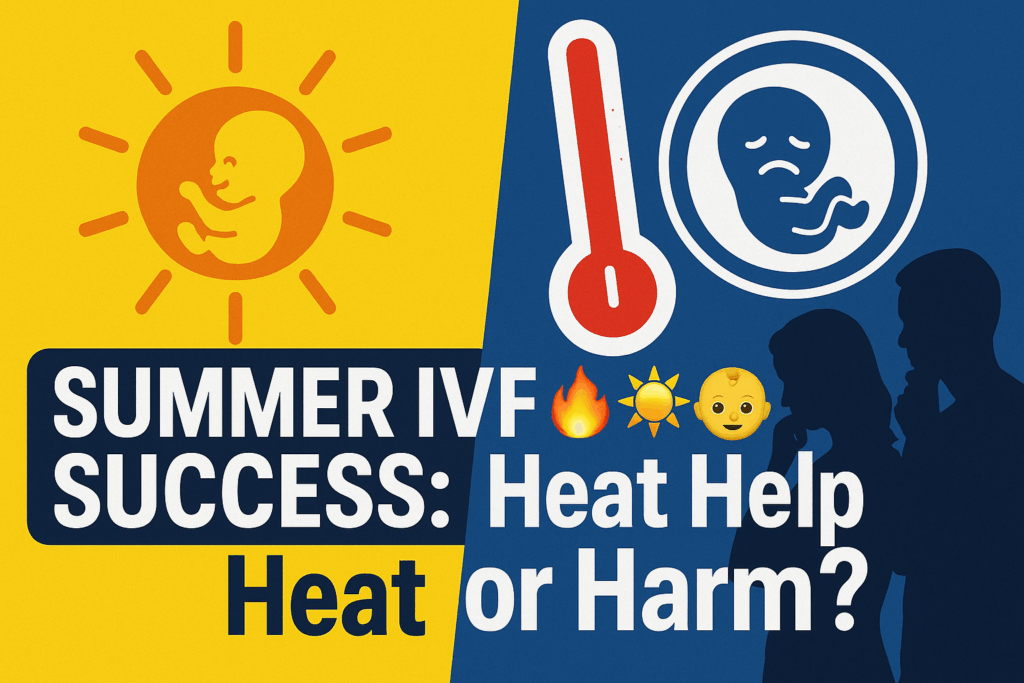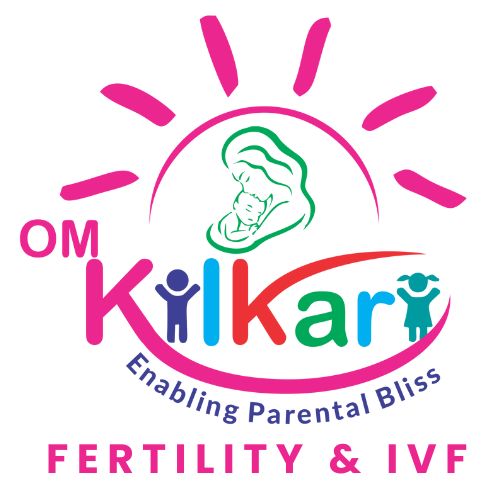Introduction

In vitro fertilization (IVF) is a complex and delicate process influenced by numerous factors, including hormonal balance, medical protocols, and even environmental conditions. As summer approaches, many couples undergoing IVF wonder whether seasonal changes—particularly June’s warmer weather—can impact their treatment success.
This blog explores the connection between June weather and IVF outcomes, examining how temperature, humidity, and lifestyle factors may influence fertility treatments. We’ll also provide practical tips for optimizing IVF success during the summer months.
How Does June Weather Impact IVF Success?
1. Temperature and Sperm Quality
One of the most studied aspects of seasonal fertility variations is the effect of heat on sperm production. Research suggests that:
- Higher temperatures can reduce sperm count and motility.
- Prolonged heat exposure (such as hot tubs or tight clothing) may negatively affect male fertility.
- Summer heatwaves could temporarily lower semen quality, potentially impacting IVF fertilization rates.
Couples undergoing IVF in June should ensure that male partners avoid excessive heat exposure to maintain optimal sperm health.
2. Vitamin D and Fertility
June brings longer daylight hours, increasing sun exposure and natural vitamin D production, which is crucial for fertility. Studies show that:
- Vitamin D deficiency is linked to lower IVF success rates.
- Optimal vitamin D levels improve embryo implantation and pregnancy outcomes.
- Sunlight boosts mood, reducing stress, which can positively influence fertility.
However, excessive sun exposure without protection can be harmful, so balance is key.
3. Dehydration and Hormonal Balance
Summer heat increases the risk of dehydration, which can affect:
- Cervical mucus quality, essential for natural conception and embryo transfer.
- Blood flow to the uterus, potentially impacting implantation.
- Hormonal regulation, as dehydration stresses the body.
Staying well-hydrated is crucial for women undergoing IVF in June.
4. Air Pollution and Ozone Levels
June often sees higher air pollution and ozone levels, which studies associate with:
- Reduced embryo quality in IVF cycles.
- Higher oxidative stress, which may impair reproductive cells.
- Increased risk of miscarriage in early pregnancy.
Patients in urban areas should monitor air quality and limit outdoor activity on high-pollution days.
5. Stress and Seasonal Lifestyle Changes
Summer can bring both relaxation and disruptions:
- Vacations and travel may interfere with strict IVF medication schedules.
- Heat-related fatigue can increase stress, negatively affecting fertility.
- Social events (weddings, holidays) may add emotional pressure.
Maintaining a structured routine and stress-management techniques (yoga, meditation) can help.
Tips for Optimizing IVF Success in June
1. Stay Cool and Hydrated
- Drink at least 2-3 liters of water daily.
- Avoid excessive heat (saunas, hot baths).
- Wear loose, breathable clothing.
2. Monitor Sun Exposure
- Get 15-30 minutes of sunlight daily for vitamin D.
- Use sunscreen to prevent skin damage.
- Consider vitamin D supplements if levels are low.
3. Maintain a Fertility-Friendly Diet
- Eat antioxidant-rich foods (berries, leafy greens) to combat oxidative stress.
- Include omega-3 fatty acids (salmon, flaxseeds) for hormonal balance.
- Avoid processed foods and excess caffeine, which can dehydrate the body.
4. Plan Around Travel and Medications
- If traveling, ensure proper storage of IVF medications (some require refrigeration).
- Coordinate with your clinic for timely monitoring appointments.
- Keep a medication schedule reminder on your phone.
5. Reduce Stress with Relaxation Techniques
- Practice mindfulness or meditation.
- Engage in gentle exercise (walking, swimming).
- Consider acupuncture, which may improve IVF success rates.
Conclusion
While June’s warmer weather brings certain challenges for IVF patients, proactive measures can help mitigate risks and even enhance fertility outcomes. By staying hydrated, managing heat exposure, optimizing vitamin D levels, and reducing stress, couples can improve their chances of a successful IVF cycle during the summer months.
If you’re undergoing IVF in June, consult your fertility specialist for personalized advice tailored to your unique needs. With the right precautions, summer can still be a great time for fertility treatments.
